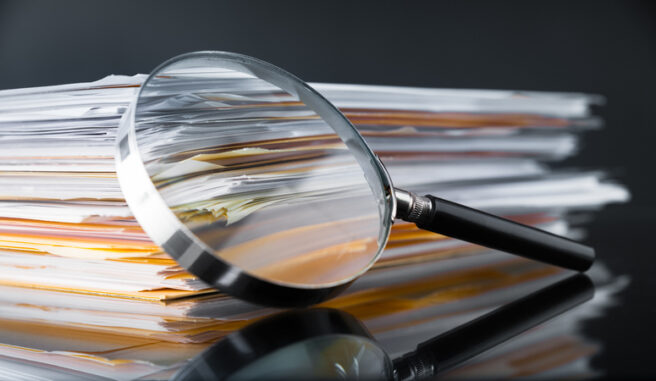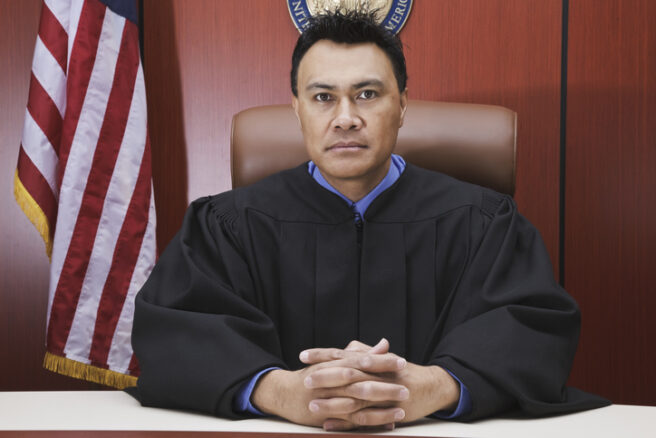
One of the often used garbage objections in response to written discovery, especially in document demands, is the phrase “vague, ambiguous unwarranted annoyance, embarrassment, and oppression and undue burden and expense.” Which is a paraphrase of Code of Civil Procedure §2023.010(c). These objections are often strung together in a single sentence with other garbage objections without explanation.
Courts uniformly condemn this practice because discovery objections must be specific and factually supported, not rote incantations. See Korea Data Systems Co. v. Superior Court (1997) 51 Cal.App.4th 1513
The court’s philosophy is that boilerplate objections undermine the cooperative purpose of discovery. The Civil Discovery Act is designed to encourage transparency and the exchange of information necessary so all sides can evaluate their case and prepare for trial. (C.C.P. § 2017.010.) Blanket objections, especially when used reflexively or without factual justification, obstruct that purpose and often signal bad faith. See C.C.P. §2023.010.
Disputes regarding objections to written discovery, especially documents, are where the most battles arise. Over the last 30+ years of ruling on these motions, I have found that both sides contribute to the stalemate of resolving the issues when it comes to these objections. And, its not merely academic. Think about when you receive responses with all sorts of objections. Is there additional information that is not being provided because of the objection or assertion of privilege, or is it merely boilerplate followed by the best information the opponent has? The decision to spend the time and money to make a motion depends on which it is.
Propounding Party’s Mistakes
The interrogatory, document request or request for admission needs to have specificity for the responding party to reasonably respond. Common mistakes, especially with document requests, are these:
- It is overbroad in time and scope.
- Not reasonably particularized because numerous documents may tangentially refer to this request. Calcor Space Facility, Inc. v. Sup Ct (1997) 53 CA4th 216, 212
- It is vague and ambiguous, particularly as to the terms or a phrase “_____” requiring responding party to speculate as to what documents might be responsive.
- The phrase “_____” calls for documents proving a negative. Instead, should replace special interrogatories with requests for admissions.
- It is unduly burdensome and oppressive, especially with regard to documents that are likely to include privileged or material protected by privacy. See Mead Reinsurance Co. v. Sup. Ct. (City of Laguna Beach) (1986) 188 CA3d 313, 318
- It is overbroad, burdensome, and oppressive because it requires respondent to prepare a compilation of data (for Interrogatories only).
- Place more burden upon the adversary than the value of the information warrants. Greyhound Corp. v. Supt Ct.(1961) 56 C2d 355, at 384-385
Responding Party’s Errors
- Failing to comply with responding party’s obligations in responding to written discovery.
- Responding with all objections without providing specific facts why the objection is valid. Korea Data Systems Co. v. Superior Court (1997) 51 Cal.App.4th 1513.
- Failing to realize “fishing expeditions” are permissible. Lopez v. Watchtower Bible and Tract Society of New York, Inc. (2016) 246 CA4th 566
- Failing to provide a definition of any disputed or ambiguous term in the response to respond to the interrogatory or request, such as stating: Plaintiff/Defendant construes “_____” to mean “_____.”
- Failing to meet and confer with the propounding party regarding concerns with the written discovery before the response is due
- Failing to meet and confer and determine if there is less intrusive discovery methods to obtain the information.
- Failing to meet and confer and determine whether stipulations can be agreed upon in order to limit the scope of discovery.
Motions for Protective Orders
The responding party may bring a motion for protective order to narrow the broad scope of the discovery. Such orders may be granted if the court finds
- The stakes in the case (because a given cost of production may be reasonable in a large case but not a smaller one);
- The availability of less burdensome, alternative sources of the proposed discovery
- Materiality of the information sought (i.e., how peripheral or collateral it is to a claim or defense of the case);
- Utility of the information (i.e., how useful it will be to prove a material issue in the case.)
- The Discovery sought is unreasonably cumulative or duplicative
- The party seeking discovery has had ample opportunity by discovery in the action to obtain the information sought.
In my experience, most protective orders are only granted in part on burdensome grounds unless the discovery propounded is being used as a weapon or seeks privileged information. When the area of discovery that the propounding party is seeking is permissible, I rewrite the interrogatory or request. Instead of incurring the expense of bringing and responding to motions, the parties should meet and confer to cure the flaws of the discovery requested.









